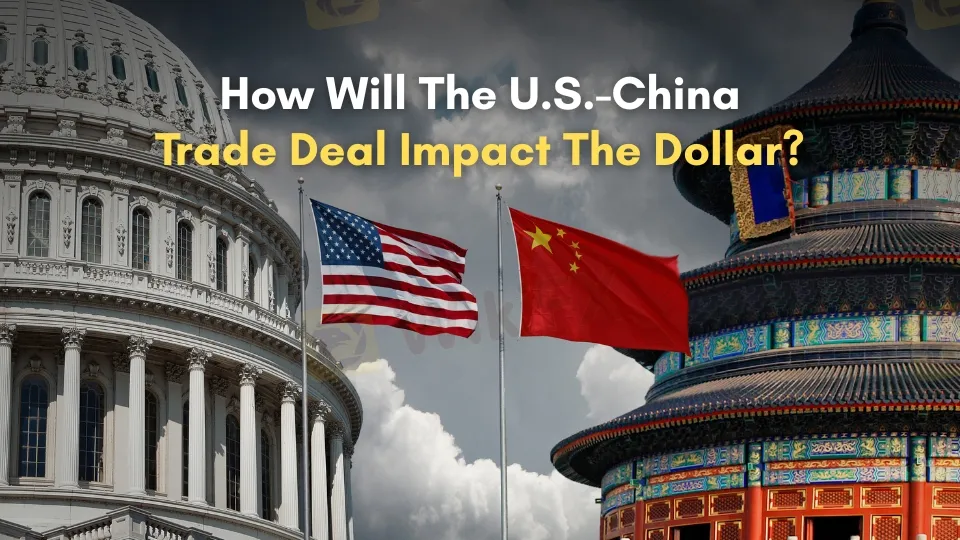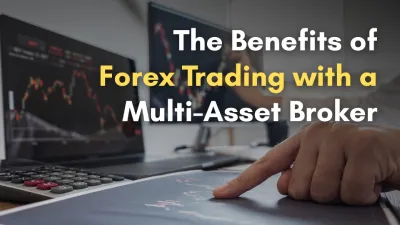How Will the U.S.-China Trade Deal Affect the Dollar and Global Markets?
Abstract:The U.S. dollar surged after the U.S. and China agreed to temporarily cut tariffs, easing concerns over a global recession and boosting market sentiment.

On Monday, a breakthrough in U.S.-China trade talks sent the U.S. dollar climbing and ignited a surge in global stock markets. The two economic powerhouses struck a temporary deal to scale back tariffs, calming fears that their ongoing trade spat could drag the world into a recession. This unexpected agreement has injected a dose of optimism into financial markets, with investors eagerly watching what comes next.
Under the deal, the U.S. will slash extra tariffs on Chinese goods from 145% to 30%, while China will lower its duties on U.S. imports from 125% to 10%. The truce, set to last 90 days, gives both nations a chance to work toward a longer-term resolution. “This pause is a relief, but it‘s just a breather,” said Sarah Mitchell, a trade analyst at Horizon Economic Group in Boston. “We’re still far from solving the deeper issues driving this conflict.”
The agreement caught many by surprise, as earlier talks had hinted at little progress. Yet, the news was a boon for markets. The U.S. Dollar Index, which measures the dollar against major currencies like the euro and yen, jumped 1.5% to 101.91. The euro took a hit, dropping 1.54% to $1.1074—its biggest single-day slide since early November. The dollar also gained 2.19% against the Japanese yen, reaching 148.50, its highest since April, and rose 1.86% against the Swiss franc to 0.847. The British pound wasnt spared, falling 1.07% to $1.3162, marking its steepest daily drop since April.

U.S. stocks rode the wave of optimism, with the S&P 500 soaring over 3%. Safe-haven currencies, typically favored during uncertain times, lost ground as investors embraced riskier assets. “The market‘s cheering this deal, but it’s a short-term fix,” Mitchell noted. “The next 90 days will be crucial to see if both sides can build on this momentum.”
Despite the dollar‘s recent gains, it’s still down 2.2% since April, when President Trump‘s sweeping tariff announcements rattled markets. The uneven rollout of those policies sparked volatility, shaking confidence in U.S. assets. Now, attention is turning to key economic data: Tuesday’s Consumer Price Index (CPI) and Thursdays retail sales figures. These reports will shed light on how the trade dispute has affected the economy and shape expectations for Federal Reserve interest rate moves.
Investors are rethinking their bets on rate cuts, with the trade deal easing economic concerns. Many now expect the Feds first 25-basis-point cut in September, a shift from earlier predictions of a July move. “This deal gives the Fed room to hold steady on rates, which supports the dollar for now,” said analysts at Cornerstone Wealth Advisors. The Chinese yuan also saw a modest gain, rising 0.52% to 7.201 against the dollar, signaling cautious optimism in China.
Beyond trade, the weekend brought relief on the geopolitical front. India and Pakistan agreed to a ceasefire after days of border clashes, soothing jittery markets. Meanwhile, Ukrainian President Volodymyr Zelenskyy signaled openness to meeting Russian President Vladimir Putin in Turkey for talks—the first potential dialogue since Russias 2022 invasion of Ukraine. These developments have bolstered global risk sentiment, adding to the positive market mood.
As the dust settles, investors are hopeful but cautious. The U.S.-China trade truce is a step forward, but whether it leads to lasting progress or just delays tougher challenges remains to be seen.

Read more

Trade Nation Expands: New Lisbon Entity Targets EU and Brazil Markets
Trade Nation opens Lisbon entity to gain EU license & tap Brazil's forex market, leveraging CMVM regulation & Portuguese ties.

The Advantages of Trading Forex with a Multi-Asset Broker
Know why forex trading with a multi-asset broker in 2025 offers diversification, low costs, advanced tools, and global market access for smarter, flexible trading.

BitGo Secures MiCA License, Expands Crypto Services Across the EU
BitGo Europe GmbH has received a MiCA license from BaFin, enabling the firm to offer regulated digital asset services across the European Union, boosting crypto adoption.

CySEC Revokes Former BDSwiss Affiliate Viverno Markets License
CySEC revokes Viverno Markets' investment license due to inactivity. The firm must return client funds and resolve complaints as it winds down operations.
WikiFX Broker
Latest News
Short-Term Pressure Mounts on Gold as Risk Sentiment Improves
How Will the U.S.-China Trade Deal Affect the Dollar and Global Markets?
Radiant DAO Proposes Compensation Plan for Wallet Losses
Unlocking Forex Profits: Your Guide to Smart Currency Trading
BitGo Secures MiCA License, Expands Crypto Services Across the EU
Donald Trump prizes more Gulf investment in the US
FBI Calls on AML Bitcoin Scam Victims to File Claims by June 5
US Dollar Index Makes a Strong Comeback, Climbs Back to 101.60 Level
CMC Markets Partners with FYNXT to Enhance Client and Partner Portals
CySEC Withdraws CIF License of Viverno Markets Ltd
Rate Calc
